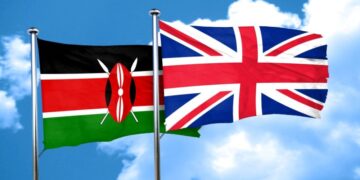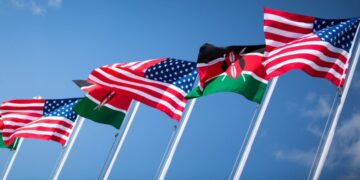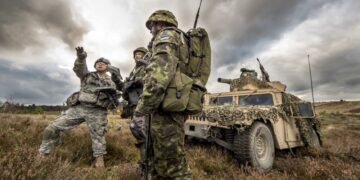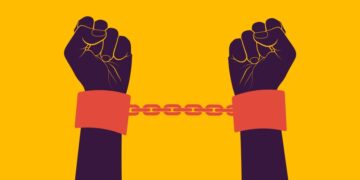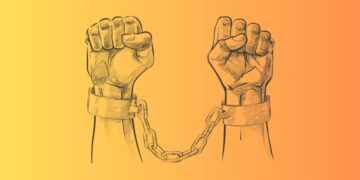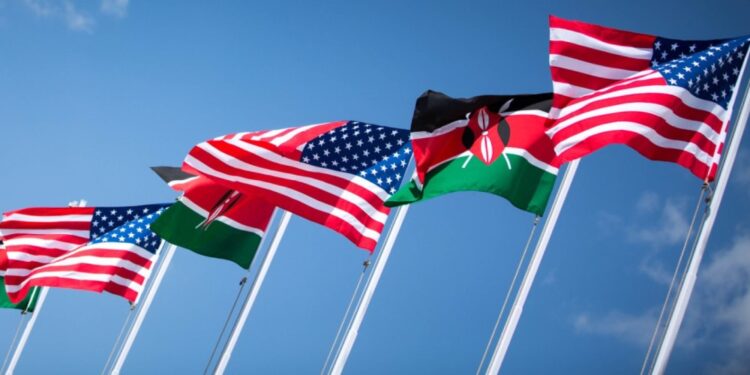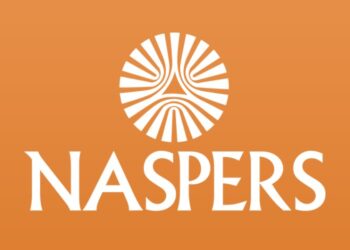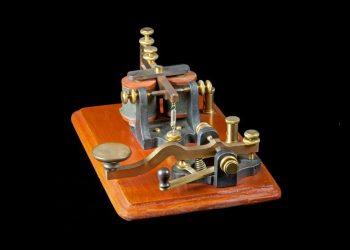Traveling to the United States, the land of opportunity, is a dream for many Kenyan citizens. Whether you’re a fervent traveler yearning to visit iconic landmarks, a diligent scholar aspiring to pursue higher education in esteemed American institutions, an enterprising professional seeking new horizons in the land of opportunity, or simply seeking to reunite with family and friends, understanding the visa requirements is crucial. The formidable challenge of obtaining a U.S. visa is a journey fraught with intricacies, uncertainties, and meticulous preparation.
Types of U.S. visas
Navigating the United States visa landscape requires an understanding of the various visa types available to Kenyan citizens. Each visa category serves a distinct purpose, catering to different travel, study, work, and immigration needs.
a. Tourist Visa (B-1/B-2 Visa)
- Purpose: Intended for individuals traveling to the U.S. for tourism, pleasure, or medical treatment. It also covers visits to family and friends.
- Duration: Typically granted for short stays, usually up to six months.
- Application process: Requires proof of sufficient funds, a compelling reason for travel, and ties to Kenya to demonstrate intent to return.
b. Student Visa (F-1 Visa)
- Purpose: Designed for international students pursuing academic or language studies at accredited U.S. institutions.
- Duration: Valid for the duration of the academic program, with the possibility of extension for practical training.
- Application process: Requires acceptance from a U.S. institution, proof of financial support, and adherence to specific academic and English language proficiency standards.
c. Exchange Visitor Visa (J-1 Visa)
- Purpose: Facilitates participation in exchange programs sponsored by governments, educational institutions, or private organizations.
- Duration: Duration varies based on the specific exchange program, ranging from a few weeks to several years.
- Application process: Involves sponsorship by an approved exchange program, along with meeting program-specific requirements.
d. Work Visa (H-1B Visa, L-1 Visa, etc.)
- Purpose: Allows individuals to work in the U.S. temporarily in specialized occupations, intra-company transfers, or other employment categories.
- Duration: Varies depending on the visa type and employment terms, typically ranging from several months to several years.
- Application process: Requires sponsorship by a U.S. employer, meeting specific job qualifications, and obtaining approval from the U.S. Citizenship and Immigration Services (USCIS).
e. Family-based Visas
- Purpose: Enables family reunification by allowing eligible relatives of U.S. citizens or permanent residents to immigrate to the United States.
- Types: Include immediate relative visas (IR) for spouses, children, and parents of U.S. citizens, as well as family preference visas (F) for more distant relatives.
- Application process: Involves petitioning by the sponsoring family member, meeting eligibility criteria, and navigating the family-based immigration process.
f. Diversity Visa (DV) Lottery
- Purpose: Provides a pathway for citizens of eligible countries, including Kenya, to apply for permanent residence in the U.S. through a random lottery selection process.
- Duration: Grants permanent residency status (Green Card) to select individuals and their eligible family members.
- Application process: Requires registration during the annual DV lottery entry period and selection through a randomized drawing.
General visa requirements
Securing a U.S. visa involves meeting a set of general requirements applicable across various visa categories. While specific criteria may vary depending on the type of visa sought, certain fundamental prerequisites apply universally to Kenyan citizens applying for a U.S. visa.
a. Valid passport
Kenyan citizens must possess a valid passport issued by the Republic of Kenya. The passport should have an expiration date at least six months beyond the intended period of stay in the United States.
b. Online Visa Application (DS-160)
Applicants must complete the DS-160 form online through the Consular Electronic Application Center (CEAC). The DS-160 form gathers biographical information, travel details, and other pertinent data required for visa processing.
c. Visa appointment
After completing the DS-160 form, applicants must schedule a visa interview appointment at the U.S. Embassy or Consulate in Kenya. Appointment scheduling is typically done through the U.S. Visa Information and Appointment Services website.
d. Visa fee payment
Payment of the non-refundable visa application fee is mandatory for all visa categories. The fee amount varies depending on the type of visa sought and must be paid in advance through designated payment channels.
e. Passport-size photos
Applicants are required to submit recent passport-size photographs meeting the specifications outlined by the U.S. Department of State. The photographs must be in color, taken against a plain white or off-white background, and adhere to specific size and composition guidelines.
f. Supporting documents
Applicants must compile a comprehensive set of supporting documents to substantiate their visa application. Commonly required documents include:
- Proof of financial means to cover travel expenses and sustain oneself during the U.S. stay (e.g., bank statements, pay stubs, or sponsorship letters).
- Travel itinerary outlining the purpose, duration, and details of the intended trip to the United States.
- Evidence of ties to Kenya, such as employment letters, property ownership documents, or family relationships, to demonstrate strong social, economic, and familial connections to the home country.
- Additional documents specific to the visa category being applied for (e.g., Form I-20 for student visas, employment offer letters for work visas).
g. Medical examination (if required)
Some visa categories, particularly immigrant visas, may necessitate undergoing a medical examination by a designated physician. The medical examination aims to assess the applicant’s health status and ensure compliance with U.S. immigration requirements.
h. Interview preparation
Applicants must prepare thoroughly for the visa interview, which serves as a crucial step in the application process. Preparation involves familiarizing oneself with visa requirements, anticipating interview questions, and assembling all necessary documents for presentation to the consular officer.
Specific visa requirements
For Kenyan citizens seeking to obtain specific types of U.S. visas, such as tourist visas, student visas, work visas, or family-based visas, there are additional requirements tailored to each visa category.
a. Tourist Visa (B-1/B-2 Visa)
- Proof of intent
- Provide a clear and compelling explanation of the purpose of the visit, emphasizing tourism, vacation, medical treatment, or visiting family and friends.
- Demonstrate ties to Kenya, such as employment, property ownership, or family relationships, to establish intent to return after the temporary visit.
- Financial documentation
- Present evidence of sufficient funds to cover travel expenses, accommodation, and daily expenses during the stay in the United States.
- Submit recent bank statements, pay stubs, or sponsorship letters demonstrating financial stability.
- Travel itinerary
- Furnish a detailed itinerary outlining the planned activities, destinations, and duration of the trip to the United States.
- Include flight reservations, hotel bookings, and any planned tours or activities.
- Letter of invitation (if applicable)
- If visiting family or friends in the U.S., provide a formal letter of invitation from the host, including details of the relationship, purpose of visit, and duration of stay.
b. Student Visa (F-1 Visa)
- Form I-20
- Obtain Form I-20 (Certificate of Eligibility for Nonimmigrant Student Status) from the U.S. educational institution you plan to attend.
- The Form I-20 confirms acceptance into a full-time academic program and outlines the details of the course of study.
- SEVIS fee payment
- Pay the SEVIS (Student and Exchange Visitor Information System) fee before the visa interview.
- The SEVIS fee is a mandatory payment for F and M visa applicants to support the administration of the SEVIS program.
- Academic transcripts and test scores
- Submit academic transcripts, diplomas, and certificates from previous educational institutions.
- Provide standardized test scores, such as TOEFL (Test of English as a Foreign Language) or IELTS (International English Language Testing System), to demonstrate English language proficiency.
- Financial documentation
- Demonstrate the ability to finance your education and living expenses in the United States.
- Present bank statements, scholarship award letters, or sponsorship affidavits to prove financial capability.
b. Work Visa (H-1B Visa, L-1 Visa, etc.)
- Form I-129 and employment offer
- Your prospective employer in the United States must file Form I-129 (Petition for a Nonimmigrant Worker) on your behalf.
- Provide the employment offer letter detailing the job position, responsibilities, salary, and other terms of employment.
- Educational and professional qualifications
- Submit documentation verifying your educational background, professional qualifications, and relevant work experience.
- Include academic transcripts, diplomas, certificates, and letters of recommendation from previous employers.
- Labor Condition Application (LCA) (for H-1B Visa)
- If applying for an H-1B visa, the employer must obtain an approved Labor Condition Application (LCA) from the Department of Labor.
- The LCA certifies that the employment of foreign workers will not adversely affect wages and working conditions of U.S. workers.
d. Family-based Visas
- Petition by sponsor
- If applying for a family-based immigrant visa, the sponsoring relative (U.S. citizen or lawful permanent resident) must file a petition (Form I-130) with U.S. Citizenship and Immigration Services (USCIS).
- The petition establishes the familial relationship and eligibility for immigration benefits.
- Supporting documentation
- Provide supporting documents to prove the familial relationship, such as birth certificates, marriage certificates, or adoption decrees.
- Include evidence of the sponsor’s U.S. citizenship or lawful permanent residency status.
- Affidavit of support
- Submit an Affidavit of Support (Form I-864) demonstrating the sponsor’s ability to financially support the immigrant applicant.
- The affidavit ensures that the immigrant will not become a public charge and can be financially supported during their initial period in the United States.
Visa interview process
The visa interview is a critical component of the U.S. visa application process, providing consular officers with an opportunity to assess the applicant’s eligibility, intentions, and qualifications for the requested visa. For Kenyan citizens applying for a U.S. visa, the interview process is a pivotal step that requires thorough preparation and adherence to certain protocols.
a. Schedule the visa interview
After completing the DS-160 form and paying the visa application fee, applicants must schedule a visa interview appointment at the U.S. Embassy or Consulate in Kenya. Appointment scheduling can typically be done online through the U.S. Visa Information and Appointment Services website or by contacting the embassy/consulate directly.
b. Gather required documents
Prior to the interview, ensure all required documents are organized and readily accessible for presentation to the consular officer. Documents may include the passport, DS-160 confirmation page, visa appointment confirmation, supporting financial documents, travel itinerary, and any additional documentation specific to the visa category.
c. Prepare for the interview
Familiarize yourself with the visa requirements, application process, and U.S. immigration laws relevant to your visa category.
Anticipate questions that may be asked during the interview, focusing on your travel plans, ties to Kenya, employment/educational background, and reasons for visiting the United States. Practice articulating your responses clearly and concisely, maintaining honesty and consistency throughout the interview.
d. Attend the interview
Arrive at the U.S. Embassy or Consulate well in advance of your scheduled interview appointment. Bring all required documents, including the passport and confirmation of visa fee payment. Upon arrival, undergo security screening before proceeding to the consular section for the interview.
e. Interview process
The visa interview typically takes place at a designated window or booth within the consular section. The consular officer will greet you and initiate the interview process by verifying your identity and reviewing your application. Be prepared to answer questions related to your visa application, travel plans, ties to Kenya, and other relevant details. Remain composed, polite, and cooperative throughout the interview, addressing the consular officer respectfully and directly.
f. Submission of biometric data (if applicable)
In certain cases, applicants may be required to provide biometric data, such as fingerprints and a photograph, as part of the interview process. Biometric data collection is usually conducted at the embassy/consulate immediately before or after the visa interview.
g. Await visa decision
Following the interview, the consular officer will either approve or deny the visa application based on their assessment of eligibility and compliance with visa requirements. If approved, the visa will be affixed to the applicant’s passport, and instructions will be provided for passport retrieval. In the event of a visa denial, the consular officer will explain the reasons for the decision, and applicants may have the option to reapply in the future, addressing any deficiencies identified during the initial application.
h. Post-interview procedures
Upon receiving the visa, carefully review the visa stamp for accuracy, including the visa category, validity dates, and any special annotations. Familiarize yourself with the terms and conditions of the visa, including permissible activities, duration of stay, and any restrictions or requirements imposed.
Visa approval and entry to the U.S.
Upon receiving approval for a U.S. visa, Kenyan citizens can proceed with preparations for entry into the United States. The visa approval signifies official permission to travel to the U.S. for the purposes outlined in the visa application.
a. Visa issuance
After a successful visa interview, if the consular officer approves the visa application, the visa will be affixed to the applicant’s passport. The visa will specify the visa category, validity dates, number of entries permitted, and any additional annotations or restrictions.
b. Travel planning
Once the visa is issued, plan the travel itinerary, including flight bookings, accommodation arrangements, and other logistical details. Ensure compliance with the visa validity dates, as entry to the U.S. is permitted only during the visa’s validity period.
c. Pre-departure preparation
Before departing for the United States, review the visa stamp in the passport to verify the accuracy of information, including the visa category and validity dates. Gather all required documents for travel, including the passport with the affixed visa, boarding passes, travel insurance, and any additional documentation recommended by the airline or immigration authorities.
d. Arrival in the United States
Upon arrival at a U.S. port of entry (e.g., airport, seaport, or land border crossing), proceed to the designated immigration and customs inspection area. Present the passport with the affixed visa to the Customs and Border Protection (CBP) officer for inspection.
e. Immigration inspection
The CBP officer will conduct a brief interview and review the traveler’s documents, including the passport, visa, and completed Arrival/Departure Record (Form I-94). Provide truthful and concise responses to any questions posed by the CBP officer regarding the purpose of the visit, intended duration of stay, and other relevant details.
f. Biometric data collection (if applicable)
In certain cases, travelers may be required to provide biometric data, such as fingerprints and a photograph, as part of the immigration inspection process.
g. Admissibility determination
The CBP officer will assess the traveler’s admissibility into the United States based on factors such as visa validity, purpose of travel, ties to Kenya, and compliance with immigration laws. If deemed admissible, the CBP officer will stamp the passport and issue an electronic Form I-94 indicating the authorized duration of stay in the U.S.
h. Entry into the United States
After successfully passing through immigration inspection, proceed to collect checked luggage (if applicable) and proceed to the designated exit area. Begin exploring and enjoying your stay in the country, adhering to applicable laws and regulations.
i. Departure from the United States
Before the expiration of the authorized stay indicated on the Form I-94, make arrangements to depart the United States or seek an extension of stay if necessary. Ensure compliance with all U.S. immigration laws and regulations during the period of stay in the country.
Conclusion
Dreams of traversing the bustling streets of New York City, exploring the serene landscapes of Yellowstone National Park, or pursuing academic excellence in the hallowed halls of Ivy League universities have long beckoned Kenyan citizens to the United States. Embarking on the odyssey to attain a U.S. visa demands meticulous preparation, unwavering patience, and a nuanced understanding of the process. By immersing yourself in the nuances of the U.S. visa requirements, you empower yourself to navigate the complexities of the U.S. visa application process successfully.










































































